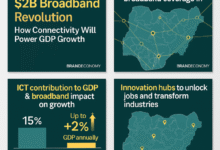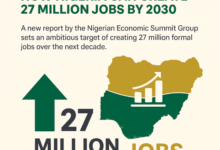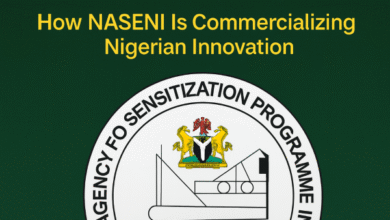
Nigeria’s long-troubled state-owned refineries may have finally reached a point of no return.
In a stinging assessment of the country’s downstream oil sector, Alhaji Aliko Dangote, Africa’s richest man and President of the Dangote Group, declared that he doubts the Port Harcourt, Warri, and Kaduna refineries will ever function again, despite over $18 billion spent on their rehabilitation.
Dangote made the statement while hosting members of the Global CEO Africa delegation from the Lagos Business School during a tour of the 650,000 bpd Dangote Refinery in Lekki, Lagos. He used the occasion to reflect on Nigeria’s refining failures, citing decades of mismanagement, policy U-turns, and unaccountable spending that have left public refineries moribund.
Public Refineries, Private Frustration
Dangote’s sobering comments underscore a long-standing paradox: Nigeria, Africa’s largest oil producer, still imports over 90% of its refined petroleum products. The failure of its publicly-owned refineries has become a symbol of policy inertia and fiscal waste.
“We bought the government refineries in January 2007,” Dangote recalled. “But following a change in government, we were forced to return them because they claimed they were gifted to us by Obasanjo. Now, $18 billion has been spent on those same refineries—and they still don’t work. I doubt if they ever will.”
The businessman likened the government’s ongoing Turnaround Maintenance (TAM) efforts to retrofitting a 40-year-old car with new engine technology, saying the infrastructure simply cannot handle modern demands.
The Numbers Behind the Decay
Despite multiple turnaround initiatives, Nigeria’s refineries remain non-functional:
- $1.4 billion approved for Port Harcourt refinery rehab in 2021
- $897 million earmarked for Warri refinery
- $586 million allocated to Kaduna refinery
- $396.33 million spent on TAM between 2013 and 2017
- ₦100 billion disbursed in 2021 alone for “rehabilitation”
- $2.4 billion invested from 2021–2024 with no usable petrol output
Recent data from March 2025 confirms the futility of these efforts. Port Harcourt produced zero litres of petrol, Warri produced only naptha, and diesel output was negligible.
Dangote Refinery: A New Era?
In stark contrast, the Dangote Refinery—Nigeria’s first private mega-refinery—has started supplying over 20 million litres of petrol per day, covering nearly 40% of domestic demand. The refinery dedicates over 50% of its capacity to Premium Motor Spirit (PMS)—a ratio more than twice that of government refineries, which managed only 22% before collapse.
Yet even Dangote’s facility, operating below full capacity, is constrained by limited market access and distribution bottlenecks. Key industry groups such as PETROAN and DAPPMAN have complained that the refinery sells primarily through exclusive terminals, leaving over 6,700 retail stations unable to buy directly.
Obasanjo: “A Monument to Waste and Corruption”
Former President Olusegun Obasanjo, who initially approved the sale of the refineries to Dangote and his partners in 2007, offered further damning insights. Speaking earlier, he claimed that:
“NNPC knew it couldn’t run the refineries, but insisted it could—so the new administration reversed the sale. Since then, billions have been squandered, and still no production. In a civilised country, people would be jailed.”
He described NNPC’s conduct as a deliberate sabotage of reform, adding that even Shell refused to operate the refineries when invited.
A Tipping Point for Policy Reform?
Calls for full privatisation of the refineries have intensified, with key voices such as the Manufacturers Association of Nigeria urging the government to sell them off, even if only as scrap. Independent crude refiners have also proposed redirecting proceeds from a potential sale to fund modular refineries, which are cheaper and faster to deploy.
In a move to regain investor confidence, the newly appointed NNPC management team sacked all refinery leadership in April 2025. However, industry observers say it may be too little, too late.
The Cost of Inaction
Nigeria spent $9.63 billion on fuel imports in 2024 alone, according to the National Bureau of Statistics. Despite being endowed with crude oil, this import dependence has become a fiscal and strategic liability, draining FX reserves and fueling subsidy debates.
“We are building the future, but we are still tied to the past,” said one senior industry analyst. “Until we let go of politically protected, economically unviable assets, true reform will be impossible.”
Bottom Line
Aliko Dangote’s verdict on Nigeria’s public refineries is not merely a critique—it’s a business-case autopsy. Despite billions spent, promises made, and multiple “restarts,” the refineries remain lifeless. Meanwhile, the private sector has stepped in, albeit with growing pains and limited reach.
The challenge now is not just about refining crude—it’s about refining policy, accountability, and vision. Nigeria must choose: continue to fund dysfunction or unleash the private sector to drive a modern energy economy.











